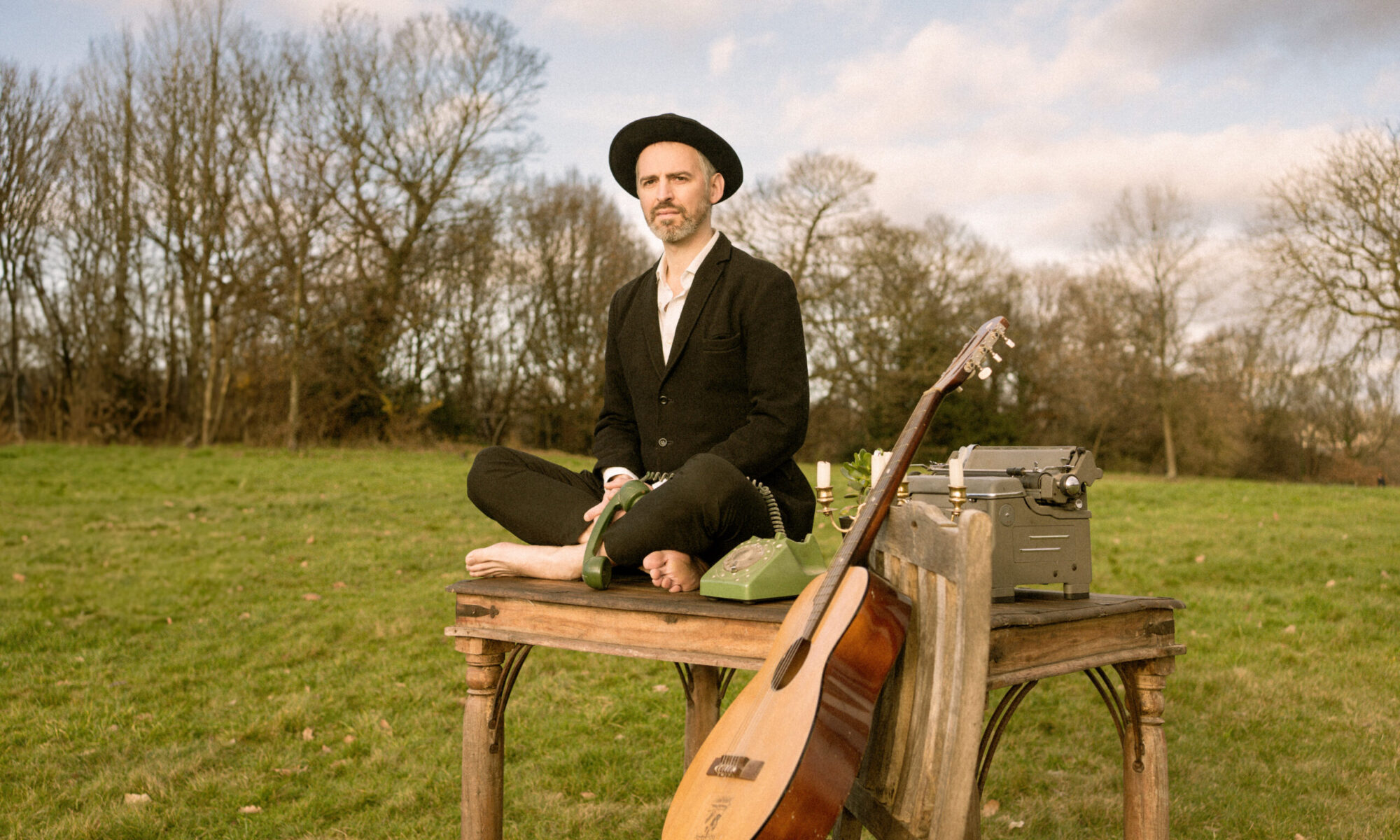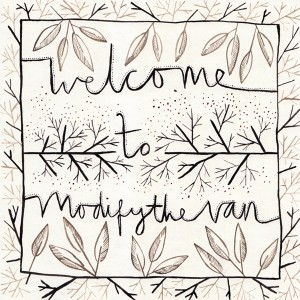
Ryan is an old old friend and has been an amazing supporter of my work over the years through his involvement with The Forest Cafe in Edinburgh.
Luckily now I have an opportunity to return the favour and support him as he has just published his first book ‘Tomorrow, We Will Live Here’ which I want to plug here.
Here is an interview which I recently did with him so you can get a flavour of his mind before heading over to the books website below to dip your toe into his words and buy a copy!
http://www.saltpublishing.com/books/smp/9781844717897.htm
——————————————————
[RG] When did the words start?
[RYW] Grey, I like that question, it is something I don’t think about often enough. The words started when I learned I had to shut my mouth. I was 7 or 8 and I realized people didn’t like me (friends say I learned sarcasm too early) – anyway, I was a little weird and easy to pick on and bully. Like most young people who this happens to, I got introverted, awkward, fat, and didn’t feel comfortable in the playground or playing baseball after school. So, I developed a very active internal life – a complicated life of confused emotions and inarticulate desire, sadness and anger.
Writing was a way for me to map this internal landscape, to make sense of myself and to figure out where I fit into the larger world. Of course, I didn’t know that at the time. At the time, I just thought I was being a writer, telling stories. (Stories that were Stephen King rip-ofs and Super-Hero pastiches). But, really, I was finding a place to be myself and learning about myself while I was doing it. So from 8 – 16 I was wrote a lot of stories and comics. This ended when I wrote a story that climaxed with the teenage protagonist (who felt ‘like an invisible robot walking to class’) killing himself. This was cathartic for me to write, of course, but the teacher I showed it to got nervous and he passed it along to the school Guidance Councillor who called me in to have a very serious, very awkward and uncomfortable conversation about my home life which, I’m sure, was all very well intentioned. That put me off writing and showing writing to people for a while. Oh, and I was nearing the end of High School – I had a lead in the school musical, had some very good, very close friends and my first girlfriend and as real-life got enjoyable, the writing just got less important for a while. Then the girl broke up with me and that’s when the poetry started. But you didn’t ask about that.
But I will say this: as I’ve gotten older and made a career out of writing, as I have developed as a person and naturally become more comfortable with the mask I wear in the world, I occasionally miss my fatter, more awkward, dazzled, burning, and somewhat lonesome self. I guess that is what “I Was a Fat Boy” is about. That hunger which we have a lot of when we are young dissipates, doesn’t it?
And I should also say (because I don’t do this enough) my parents were amazing at both reading to me as a kid and encouraging my own stories. Like most parents they thought I was gifted and made me believe it for long enough that I kept playing at writing. I distinctly remember my Mom giving me a copy of Stephen King’s Cujo at an age when most parents would have disallowed it. There were boobs, and swearing and a very angry killer dog. It was awesome. That is the first book I remember loving. Suddenly reading seemed dangerous and exciting and that’s part of what made me want to be a writer.
[RG] I have been enjoying learning about iambic pentameter and other poetic forms recently… how much attention to you spend on form and meter? do you find structural frameworks helpful or limiting or does it depend on the day/place/time/location/mood etc?
[RYW] Man, you have no idea how much this question haunts me. I’ll address meter first – I have no sense of feet, stresses, rhythm. I’m told there is some rhythm in my work but, as you learned when you tried to teach me guitar, I have no natural ear for the music. When I try to count stresses, I just end up counting syllables.
In fact, a former tutor gutted me when he said, ‘I read a poem first for its music and then for the words.’ I was shocked. And terrified. Not because I disagreed but because I don’t write that way. I’d love to be able to write blank verse like Frost or make a poem sound like a choo-choo train or do something incredibly propelling like MacNeice’s ‘Bagpipe Music’ and I’m very jealous of the poets that are able to do it successfully.
Me, I’m trying to make a poem sound natural, as close to speech as I can. That’s what I’m paying attention to when I sit down and edit. And I’m conscious of pace – if I want something to go fast or slow, staccato or more stream-of-conscious. But, man, I am lousy at Iambic Pentameter or writing poems that have 12 beats in a line etc.
That said, form is something I have more and more respect for though I don’t necessarily use a lot of received forms and I rarely sit down and think – “I will write a triolet now”. I write the poem first in the time and place and afterwards, I let the poem suggest to me what shape it should take.
And this shaping the poem does help make the work stronger. There’s a half-sonnet and a half-pantoum in the collection (and there used to be another Pantoum and a Villanelle). I no longer agree with Ezra Pound’s convincing argument that form is an easy way to force a poem out. As I understand it, his feeling was that writing a poem in strict verse was just filling up a vase and one could do it without a lot to say, just add water. Just add words that fit. Certainly, there’s been a lot of bad poetry written this way (though I don’t think taking the shackles off and letting the beats and free-versers have their way has changed the fact that a lot of people – myself included – often write tepid and lame poems). I recall reading Pound’s criticism of that kind of lazy metrical writing and feeling that I agreed. He had to react against it, there was so much of it, and many poets would choose a word for the tinkle it made rather than the meaning so you can get rather over-blown, puffed up poetry if you’re not careful.
Anyway, Don Paterson has often commented that form helps sculpt a poem by chiselling away at the dull, gray stuff. I think he writes about this in the introduction to ‘101 Sonnets’. Allow me to use my own work as an example — “Losing Army” started out as a long free-verse piece which really wasn’t very good so, with nothing to lose, I tried it out as a sonnet and, to my surprise, it worked. (Or I felt it worked, you might disagree). It was kind of like taking a cookie cutter to some dough. Suddenly the poem had shape and force and I had to throw out all the dregs that didn’t fit into those 14 lines. This was a revelation – my raw material was improved by putting constrictions and limitations on it. Form, if you are working at it, can help crystallize a poem, can help you make the right decisions about what to include, about what is essential and can force you to say things in a way you wouldn’t normally.
As a songwriter, I guess a lot of those obstacles are built in. You’ve got a melody and a chorus you have to work around. For me, as someone who typically writes free-verse, I’ve had to learn to add those constraints to my work. I find it helps so, while I don’t often use standard forms I’m still a big fan of the idea that form is content. Often it manifests in the shape of the poem, the length of the lines / stanzas but sometimes I do use a recognized form. My feeling is, get the words out and then, when editing, get that cookie cutter and make some shapes. I find settling on, say a poem comprised of 3-line stanzas helps me edit the work better, and makes me more conscious of what I’m doing.
That said, I’ve been trying to write a series of sonnets from scratch about beds I’ve slept in. (It is proving difficult, it might take a while, I have a lot to learn.)
[RG] my muses have been coming from pretty random places recently and not all of them have been romantic interests for a change! …how many different muses have you had in your life and which have made the final cut in the book? who/what has been the most unusual muse recently?
[RVW] Hard question to answer honestly, but I’ll do my best. My oddest muses have been Bruce Springsteen, road kill and recently an arm-less man I saw boarding a plane at Heathrow. (am curious about yours now) Though they are more inspiration than muse, I suppose, since they only have yielded a poem or two each and I think a muse needs to provide a constant inspiration – that drowning feeling of I can’t stop writing about you baby, everything you say is magic, every little thing you do is magic.
So, romantically, I kind of want to say I’ve never had a proper muse, someone for whom poems just pour forth. But, I was lucky enough to have one muse. A lovely Dutch photographer whom I never even kissed. I think she got all my muse-ish work (which none of you reading this will ever see). That said, I do write lovey poems and I’m certainly inspired by romance and I do get smitten and try to make poetry out of it but it is never very prolonged and rarely is it any good. Readers might find a real lack of romantic poetry in this collection.
Frankly, I dearly want my Jean but I feel way to self-conscious for all that ‘seas gone dry’ stuff. I mean, have you seen the divorce rate? When I try to write like that it sounds like bullshit. Some poets can do it. Matthew Dickman, now that man can write a genuine, in the moment, love poem. That man can work a muse. Read his poem ‘Love’ or ‘Slow Dance’ – amazing! Me, I’m way too self-effacing, realistic and bitterly cynical for it and I just can’t allow good and beauty and love sit in a poem all by themselves with nothing bad happening underneath. I’m feel tragically incapable and when I try (and I do try, baby I do) it all comes out cliché and saccharine. That is, until I get dumped. And then, because the emotion is undercut with genuine badness I’m able to write a bit more. I won’t write about my house till my house burns down. And then a lover becomes a woeful muse and, to put a number on it, there have been 3 of these – loves that have left and, in leaving, lit the dynamite on the dam.
And here I need to thank and apologize to my writing group friends who have had to read a lot of tear-soaked, poor-me poetry over the past decade. I hope the next relationship I am in, I’ll be able to be a bit freer, a bit more Dickman and less dick and will be able to really genuinely write a love poem, in a moment of tenderness, baby I’m amazed by the way I love you, kind of style.
I worry my girlfriends are always a little disappointed that I don’t come home with a poem about how cathedral like their feet are, how I want to pray at the alter of their purple painted toe-nails. Instead I come up with stuff about men and women not being able to communicate properly, about relationships that are suffering through silence. My narrators are oddly unable to speak directly. I feel bad for them. I guess I feel that type of narrator is more authentic. Though, I’m starting to realize that it is authentic because I make it so and, in actual reality, I should be better at communicating love and warmth and the general bedazzlement I feel whenever someone I love is taking her bra off, putting on one of my old t-shirts and crawling into bed. I love that moment, I never write it. Richard Brautigan was great at that moment. You should read his poems. They are beautifully romantic. He was a genius of the muse. And Hayden Carruth always manages to surprise me with how articulate his compassion is. I read his poem “Dedication” in From Snow, From Rock, From Chaos and thought – I wish I could have written that.
Whenever I find myself being overly sarcastic or rude I joke that, “my parents never loved each other” which is hopefully untrue and probably a horrible thing to say considering they are still together. But I rarely saw them love each other in a way I could believe. So, the place I end up interested in – in terms of poetry – are the silent, awkward, uncommunicative places between people. In this book, you’ll find that in “Babel”, “The Apartment”, “Stain” and a lot of others, so I guess it was a something I was working through. Those narrators are in love, but – god help them – they don’t know how to express it and they are a little afraid. And that silent, poignant, gap doesn’t just exist between lovers – I find it between father and son, brother and sister, grandfather and grandchildren, friend to friend. Essentially, even though we are all talking all the time, I think we have a hard time saying and personally, I have a hard time conveying real emotion. The poems don’t resolve that, they just explore the silence. You won’t be surprised that Raymond Carver is a really important influence.
Anyway, I guess that answers that – Will you be my therapist?
[RG] How would you like me (or anyone body else for that matter) to react after reading your book?
[RYW] Good question. My first answer would be simply Please don’t hate me.
But also, I would be really happy if someone thought the book was good enough to buy for a friend. Maybe with a heartfelt inscription and the corner of a page ticked down. That’s what I’ve done with about a dozen copies of John Glenday’s ‘Grain’ and it would be brilliant if someone did it with one of mine. And if the book isn’t strong enough to do that with, well, I hope people will consider buying the next one. I promise to make it better.
Please think, ‘Promising. I’ll buy the next one.’ I promise to try to do better.
I wanted to give people that feeling. I still love reading a King novel for that reason and, anyway, I remember writing early stories that were total King rip-offs like ‘The Thing’ a kind of play on IT, and then my illustrator friend and I tried to make a comic about a mushroom and we were 14 maybe 15 and we’d not yet experimented with phsycadelics. I still that that mushroom comic may have been genius.
Eventually, I had a really bad break up with my high-school girlfriend and I realized I wasn’t very good at telling narrative stories – I couldn’t get everything in – so I started writing poems. Andthis goes back to the beginning because all of a sudden there was all this sadness and confusion and loneliness and noone really wants to talk about it so – you sit down, you open a vein, and you let it out. This was about 1996. Eventually I took a Creative Writing class with Michael Burkard and some amazingly talented young poets who I wish I knew more about like Jen Cross, Nic Darling, Chelsa Santoro and suddenly I was learning about how to control all this stuff on the page and meeting peers taking writing poetry seriously and learning that I might, actually, be able to write the stuff. That was 1998. And now it is now.




